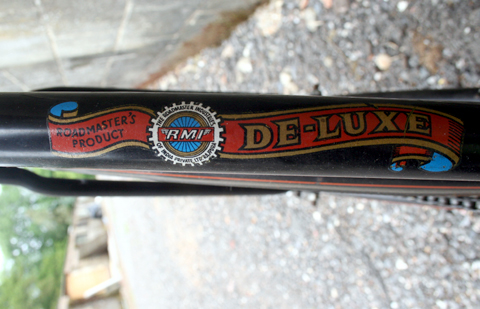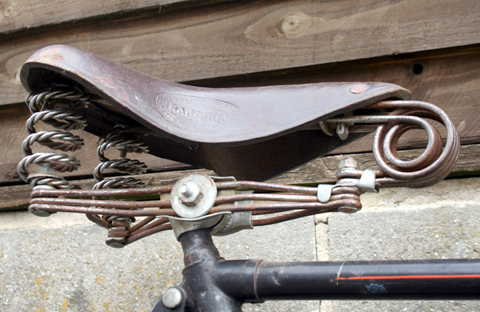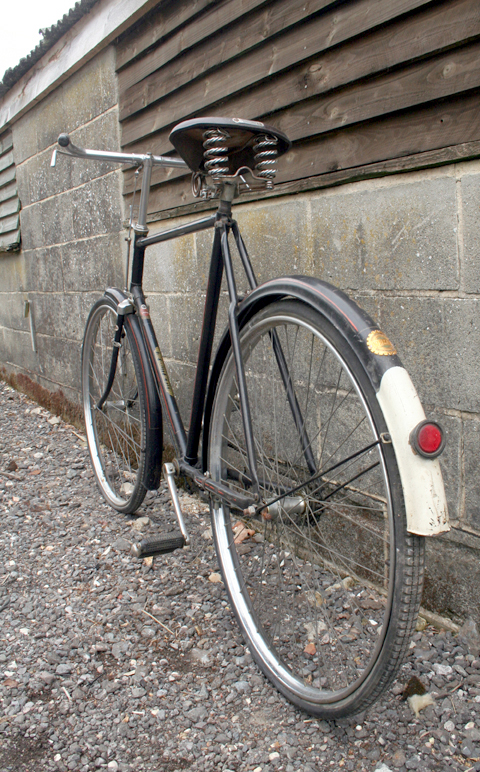

When you’re driving in India (or anywhere in Asia) you must remember at all times that the British Highway Code simply does not apply. Indian traffic might look like total chaos at first. But when you observe more closely you begin to realize that there is a different ‘highway code’ in force. It is the law of the jungle: the biggest goes first.
If you’re riding a motorcycle on a main road, and a car wants to pull out of a side road, it will pull out in front of you. Law of the Jungle.
So the ‘lion’ of Indian roads is the truck. When I see a truck coming towards me on a side road in India, I’ll pull my motorcycle over and right off the road. Here’s the heirarchy:
Truck; bus; vehicles with police, army, government officers; expensive cars; large vans (eg Tempo Matador); jeeps; bullock carts; small vans; cars; 3-wheeled commercials and autorickshaws; motorcycles and scooters; cycles; cycle-rickshaws and tricycle carriers; handcarts; pedestrians.
Note that expensive cars are higher in the traffic caste system than other cars. Tourists are considered to be a caste that’s on a par with rich middle-class Indians, so motorcycles ridden by tourists fluctuate in the traffic caste system somewhere around cars and three-wheelers.
But like all protcols in Life, there’s always an ironic variable. In this case it’s the Cow. Everything – even a truck, India’s king of the road – has to drive around a cow…
– Colin’s observations after riding motorcycles in India, Nepal, Thailand, Cambodia throughout the 1990s

1980s Raleigh ‘RMI’ Roadmaster Gents Roadster
24″ Frame
28″ Wheels

I like India. I’ve visited and travelled around the country many times. It’s one of those places that reflects aspects of our own society from many years ago.

It’s not easy to travel overland. Delays are frequent. But that’s definitely the way to get the flavour of the place.

After a while you stop judging it in western terms and accept everything on its own merits.

My Roadmaster bicycles remind me of India. I’m not sure if RMI stands for Roadmaster Industries or Raleigh Made in India. (Or maybe both?). Just as the 1950s Morris Oxford became the Hindustan Ambassador, the Raleigh Roadster also moved to India. While in Britain the Raleigh name now graces modern mountain bikes, in its Indian incarnation it still looks like a classic British black bike.

Like everything else made in India, even when it’s new it looks old.
********************
The Roadmaster Industries of India
Pvt. Ltd, Industrial Area
Rajpura, Punjab, 140401
Telex: 031 4634 RMI IN
India is the world’s second largest producer of bicycles. Most of the factories in India that manufacture bicycles and parts are located in the states of Punjab in the north and Tamil Nadu in the south. Major companies in this industry are Hero Honda, Tube Investment of India, Atlas Cycles, Hamilton Industries, R M I Cycles, and National Bicycle Corp. of India.
I’m not sure if they still do, but in the 1980s R M I Roadmaster used Raleigh parts on their bikes.
India has long had a self esteem problem. It probably stems from the Raj years when the British treated Indians as second class citizens in their own country; though the caste system was already firmly embedded in Indian society, and the Brits used that to help keep themselves in power.
Even in the years after independence, Indian society’s lack of self esteem showed up through Indian people’s attitude toward anything that was made in India. Bear in mind that the dream of every Indian was to emigrate to America or Great Britain. Western products were held up as being very well-made. And, by comparison, this was true; after many years of dependence on Russian products that were very badly made, anything from the West appeared to be good. When I first visited India, for seven months in 1994, Western TV programmes had only recently been introduced; unfortunately they led to a decline in moral attitudes and a total change in Indian society.
The only positive outcome from exposure to Western standards, good and bad, is that Indian industry has eventually improved its reputation. Companies such as Tata have introduced new ranges of vehicles that, while built more cheaply than similar Western vehicles, are of a higher standard than anything made in India in the 20th century. Many Indian emigres have now returned to India to open businesses, and have brought with them Western ideas and innovations.
But this Roadmaster bicycle comes from an era when anything Indian was looked down upon as sub-standard: for good reason too – workmanship in the eighties and nineties was shoddy and factory staff uninspired.
Roadmaster also has factories abroad. Though written in 1994 about Roadmaster in Uganda, the following article offers insights into common problems found within big Indian manufacturing corporations:
Rusty tired corrugated iron sheets, a machine grinds to a halt and a siren alerting workers to resume work welcomes you to Roadmaster Cycles (U) Ltd.
A fading inscription, which reads: “Roadmaster Cycles (U) Ltd was inaugurated by President Yoweri Museveni on August 19, 1995” catches your eye on the main entrance to the factory.
Inside the factory premises, the mood is sombre. Apart from the sound of welding and drilling machines, one can easily recognise that it is not business as usual at the only bicycle manufacturing company in Uganda.
“Things are hard,” a seemingly worn out casual labourer, clad in a dirty oily pair of jeans trousers and a shirt, said as he yanked a red hot bicycle frame from a furnace to a cooling spot. He did not want to be named for fear of retribution.
“You work but at the end of the day the take home is not compatible with the energy you exert. And yet I have to feed my family. May be ‘boss’ if you have something for food you can help,” he said.
After thirteen years of monopolising the bicycle industry in Uganda, Roadmaster Cycles has gone from being masters of the road when many Ugandans used bicycles as a convenient means of transport to being a limping roadside clown in need of resuscitation.
Its popular brand, Raleigh that feed the bodaboda (bicycle taxi) industry failed to put up with stiff competition from imported brands like Hero, Avon, Jupiter, and Eastman bicycles imported from India and Phoenix from China.
In 1995, the company was inaugurated with an initial investment of about $7 million as a branch of Roadmaster Ltd of India.
It enjoyed a three-year import duty exemption as the government sought to promote Uganda’s investment climate and profile and at its peak, it employed 100 people producing close to 90 per cent of bicycles for the domestic market.
With an import duty exemption, Roadmaster firmed itself as the market leader but was accused by competitors of being a net importer of finished parts and only used its premises to assemble the bicycles. When the grace period expired, Roadmaster was exposed to market realities.
Importers launched an onslaught that ate into Roadmaster’s market share that now stands at 45 per cent. Many Ugandans now have also moved on to ride motorcycles and vehicles and left the bicycle to the rural consumers.
[thanks to Roadmaster loses balance on the road by Joseph Olanyo – http://www.monitor.co.ug/artman/publish/business_power/Roadmaster_loses_balance_on_the_road_70479.shtml]
*********************





















